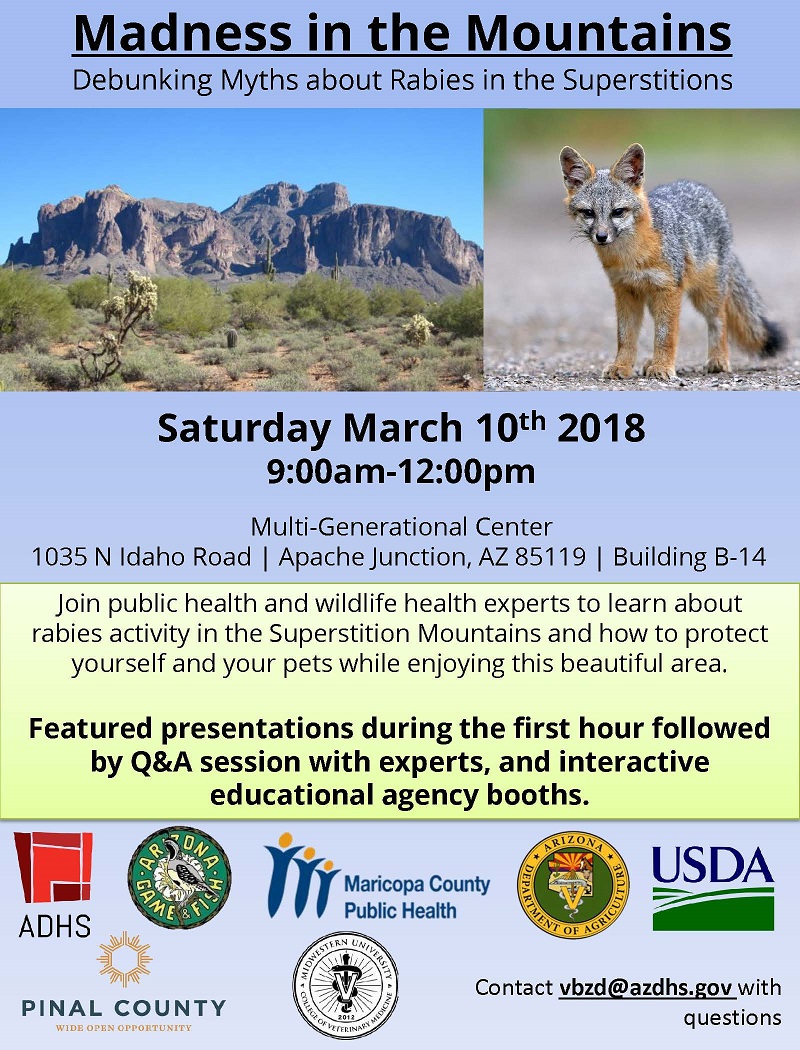 This month is National Immunization Awareness Month and we can’t stress enough how important vaccines are to protecting your family, yourself, and those around you. According to the Centers for Disease Control immunizations are one of the top 10 public health accomplishments of the 20th century.
This month is National Immunization Awareness Month and we can’t stress enough how important vaccines are to protecting your family, yourself, and those around you. According to the Centers for Disease Control immunizations are one of the top 10 public health accomplishments of the 20th century.
The 2014 National Immunization Survey for toddlers was released by the CDC today. This report summarizes provider-reported vaccination records for about 15,000 children nationwide between 19-35 months of age. The data shows the majority of parents are vaccinating their children against vaccine preventable diseases in the U.S. Both nationally and in Arizona, there were no statistically significant decreases in vaccination coverage from 2013. Of course, there is still room for improvement. Every person who gets immunized protects themselves, their family and community from vaccine-preventable diseases.
The report’s statistics show Arizona has higher vaccination coverage than the national average for the Hepatitis B birth dose and Rotavirus vaccines. According to the NIS, Arizona vaccination coverage is below the national average for several other vaccines, including MMR (Measles, Mumps, Rubella), DTaP (Diphtheria, Tetanus, Pertussis), Polio, and Hepatitis A. Since 2013, however, Arizona has seen an increase in vaccination coverage for Pneumococcal vaccine and for the completion of the recommended 4:3:1:3:3:1:4 series (4 DTaP, 3 Polio, 1 Varicella, 3 Hib, 3 Hep B, 1 MMR, 4 PCV).
However, the NIS report is only one of many tools Arizona uses to look at immunization coverage in our state. Every year, ADHS collects data from every child care, preschool, and elementary school statewide to determine the coverage in our enrolled children under 5, Kindergartners and 6th graders (our data looks at over 240,000 Arizona kids each year). Our data show our coverage levels to be much higher than what is reported in the NIS. Every piece of information helps us identify strategies and target areas to help us improve the health of our state.
Since 2014, ADHS Immunization Program Office has implemented additional strategies to increase vaccination coverage in Arizona. These strategies include making individual child care/pre-school and school vaccination coverage publicly available on our website, and giving out “Certificates of Excellence” to child care/pre-school and schools with over 95% coverage for all state required immunizations.
High coverage rates for childhood vaccines explain why most vaccine-preventable diseases are at record low levels. However, it is crucial to maintain these vaccination rates in order to prevent future outbreaks. While vaccination rates remain high in Arizona, there is still much work to be done to increase vaccination coverage and ensure herd immunity. ADHS continues to work with stakeholders to address vaccine hesitancy through education and will continue to strive to reach the Health People 2020 targets for routinely recommended childhood vaccines.












Do you have the school immunization rate data yet to see if non-medical exemptions continue to increase in Arizona?
Also, I am very concerned over the possibility that people now forge vaccine cards (which is what schools go by). You can find “how-tos” on the web for doing this.
Thanks for your questions Dr. Hickie. In regards to your first question no, data for the 2015-2016 school year is not available yet. Preliminary data will be posted early 2016.
Your concern about forged vaccine cards is an understandable one. Personnel in the school health office and child care centers utilize the Arizona State Immunization Information System (ASIIS), which is our state immunization registry, to confirm vaccinations. Additionally, the Immunization Program Office provides guidance to school health office and child care center personnel for evaluating the validity of the vaccination records like the “Blue Card”. There are specific items that must be included to confirm “proof of vaccination” beyond simply the vaccination date. Please visit our website with the Arizona Guide to School and Child Care Immunization Requirements, toolkits, requirements, FAQs, and forms.